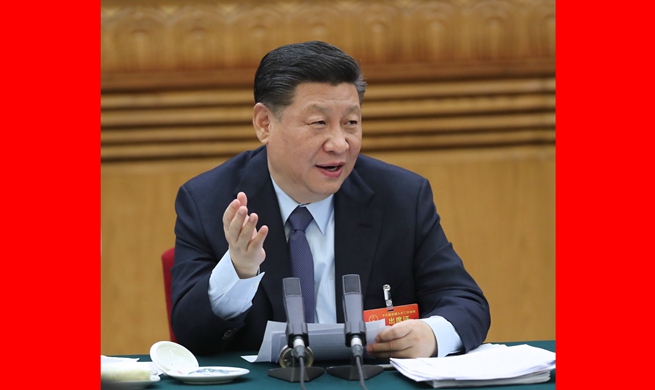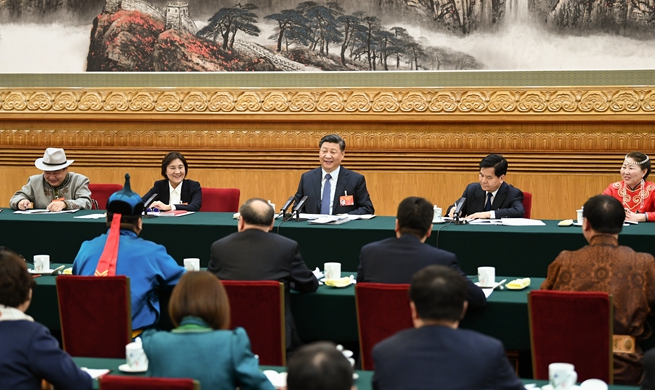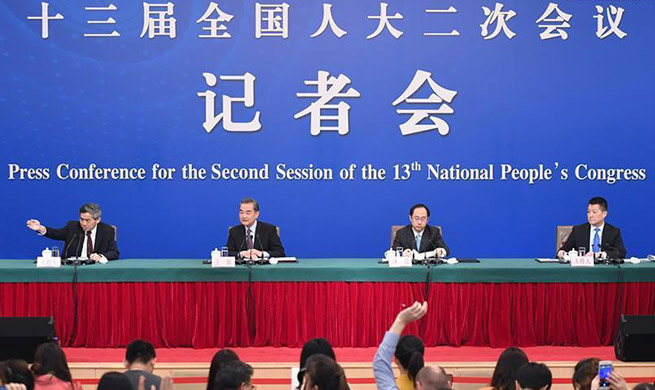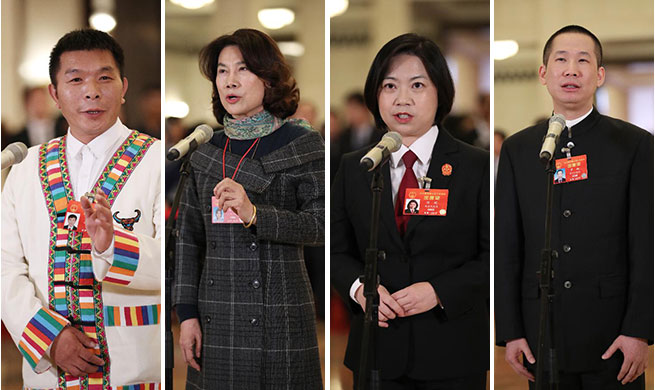MANILA, March 8 (Xinhua) -- The Philippines will not be burdened by its debt to China as the Duterte government is trying to raise funds to finance local infrastructure modernization projects, said Philippine financial officials early this week.
The Philippines' debt to China stands now at approximately one percent of its total debt, said Philippine Finance Secretary Carlos Dominguez on Wednesday.
By the end of 2022, Chinese loans to the Philippines will only account for a very small proportion of the whole debt of the government, making it impossible that this Southeast Asian country will be up to its ears in Chinese debt, Dominguez said.
"At the end of 2022 ... our debt to China will be 4.5 percent of our total debt. The debt to Japan will be 9.5 percent. Now I don't know why people are not saying we are going to drown in Japanese debt," he said.
Dominguez said that his team at the Department of Finance (DOF) has very carefully screened Chinese loans using the same standards as with any other loans.
"The debt for projects funded by China goes through the same stringent processes," he said.
Moreover, the infrastructure projects that China funded are ones that can benefit the Philippines and its people, Dominguez said.
"The important thing about debt is to make sure that the money is invested in projects whose economic return is higher than the cost of the debt and so far this is what we have done," Dominguez said.
He said the funds that the Philippines received are soft loans. "We negotiate for as long a term as possible and as low an interest as possible," he said.
"So there is no danger of us being drowned by Chinese debt," Dominguez said, adding that such statements calling Chinese funds "burdens" are "totally unfounded."
Maria Edita Tan, assistant secretary of the DOF, said early this week that China is not the largest funder of the Philippines' infrastructure modernization projects, which is another evidence that Chinese loans will not be a debt burden.
Among all foreign-funded loan agreements on the infrastructure projects implemented, at least four were with Japan, two with China, and two with South Korea, according to the DOF.
In 2017, the Duterte administration rolled out a massive infrastructure program, which intends to spend eight to nine trillion pesos (roughly 160 to 180 billion U.S. dollars) in the medium term on building roads, bridges, airports, seaports and railways in the Philippines.
According to the government data, the debt-to-GDP ratio of the Philippines in 2018 slightly dropped to 41.9 percent from 42.1 percent in 2017.
As the Philippine economy keeps growing, the Duterte administration expects a steady decline in the debt-to-GDP ratio to 38.5 percent by 2022 as economic growth is seen outpacing the increase in borrowings.
"If we are not growing but borrowing that is really bad, but since we are growing we have the ability to borrow more because we have the productive ability to pay more," Dominguez said.













